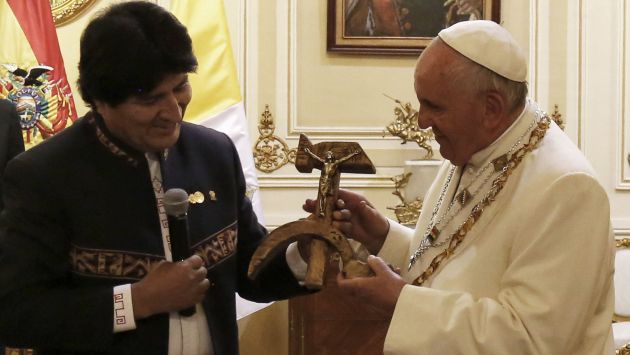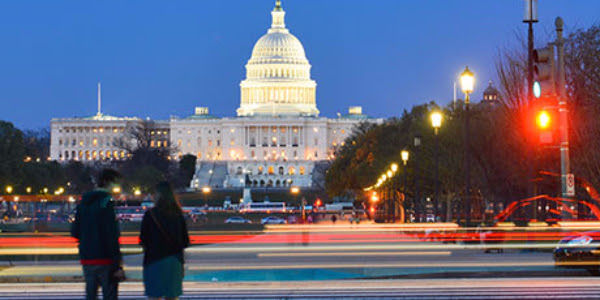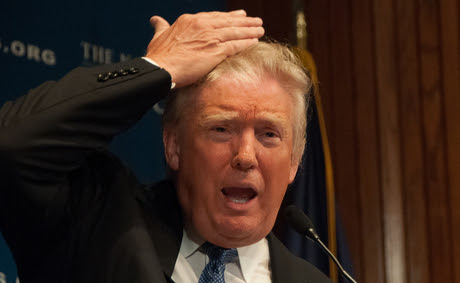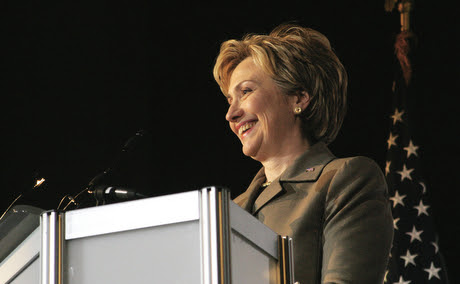When the aliens stop trifling with crop circles, bumpkin abduction, and indelicate probes and finally introduce themselves to the rest of humanity, will they turn out to be partisans of central planning, interventionism, or unhampered markets?
This is not the question asked by the Search for Extraterrestrial Intelligence (SETI) Institute, but whether or not the institute’s scientists realize it, the answer is crucial to their search.
Signs of Intelligent Life
The SETI Institute was founded by Frank Drake and the late Carl Sagan. Its scientists do not believe we have been visited yet. UFO sightings and abduction stories don’t stand up under scientific scrutiny, they say. Nor are they waiting for flying saucers. Because the aliens’ signals will likely reach Earth before their spaceships do, SETI monitors the skies for transmissions from advanced civilizations orbiting distant stars.
The scientific search for evidence of advanced alien societies began in 1960, when Drake aimed a 25-meter dish at two nearby stars. The previous year, the journal Nature had published an article called “Searching for Interstellar Communications,” which suggested that distant civilizations might transmit greetings at the same wavelength as the radio emission of hydrogen (the universe’s most common element). Drake found no such signals, nor has SETI found any evidence of interstellar salutations since. But it’s not giving up.
The Truth Is Out There
Before we can ask after advanced alien political economy, we must confront the more basic question: Is there anybody out there? SETI has been searching for over half a century. That may seem like a long time, but there are, as Sagan underscored, “billions and billions of stars.” How many of them should we expect to monitor before finding one that’s transmitting?
In an attempt to address, if not answer, the question, Drake proposed an equation in 1961 to summarize the concepts scientists think are relevant to any educated guess.
Here is how Sagan explains the Drake equation in the book Cosmos:
N*, the number of stars in the Milky Way Galaxy;
fp, the fraction of stars that have planetary systems;
ne, the number of planets in a given system that are ecologically suitable for life;
fl, the fraction of otherwise suitable planets on which life actually arises;
fi, the fraction of inhabited planets on which an intelligent form of life evolves;
fc, the fraction of planets inhabited by intelligent beings on which a communicative technical civilization develops;
and fL, the fraction of a planetary lifetime graced by a technical civilization.
The End of the World as We Know It
Sagan expounds on all the terms in the equation, but it’s that last one that absorbs him: How long can an advanced civilization last before it destroys itself?
Perhaps civilizations arise repeatedly, inexorably, on innumerable planets in the Milky Way, but are generally unstable; so all but a tiny fraction are unable to survive their technology and succumb to greed and ignorance, pollution and nuclear war.
Sagan wrote Cosmos toward the end of the Cold War. He mentioned other threats — greed, ignorance, pollution — but the specter of mutual annihilation haunted him. When he imagined the end of an advanced society, he pictured something permanent.
“It is hardly out of the question,” he wrote, “that we might destroy ourselves tomorrow.” Perhaps, Sagan feared, the general pattern is for civilizations to “take billions of years of tortuous evolution to arise, and then snuff themselves out in an instant of unforgivable neglect.”
The Rise and Fall of Civilization
We cannot know if the civilizational survival rate on other planets is high or low, and so the final term in the Drake equation is guesswork, but some guesses are better than others.
“One of the great virtues of [Drake’s] equation,” Sagan wrote, “is that it involves subjects ranging from stellar and planetary astronomy to organic chemistry, evolutionary biology, history, politics and abnormal psychology.”
That’s quite an array of topics to inform an educated guess, but notice that he doesn’t mention economics.
Perhaps he thought politics covered it, but Sagan’s political focus was more on questions of war and peace than poverty and wealth. In particular, he considered the end of civilization to be an event from which it would take a planet billions of years to recover.
The history of our own species suggests that this view is too narrow. Yes, a nuclear war could wipe out humanity, but civilizations do destroy themselves in less permanent ways.
There have been two dark ages in Western history: the Mycenaean-Greek and the post-Roman. Both were marked by retrogression in technology, art, and literacy. Both saw a drop in overall population and in population density, as survivors left towns and cities for a more autarkic existence in the countryside. And both underwent a radical decline in foreign trade and the division of labor. Market societies deteriorated into disparate cultures of subsistence farming.
The ultimate causes of the Greek Dark Age are a mystery. As with the later fall of the Roman Empire, the Mycenaean demise was marked by “barbarian” invasions, but the hungry hoards weren’t new: successful invasions depend on weakened defenses and deteriorating infrastructure. What we know is that worsening poverty marked the fall, whether as cause, effect, or both.
The reasons for the fall of the Roman West are more evident, if still debated. Despite claims of lead poisoning, poor sanitation, too much religion, too little religion, and even, believe it or not, inadequate central planning, the empire’s decline resulted from bad economic policy.
To help us see this more clearly,Freeman writer Nicholas Davidson suggests in his magnificent 1987 article “The Ancient Suicide of the West” that we look to the signs of cultural and economic decline rather than to the changes, however drastic, in political leadership. While the Western empire did not fall to the barbarians until the fifth century AD, “The Roman economy [had] reached its peak toward the middle of the first century AD and thereafter began to decline.” As with the Mycenaean Greeks, the decay was evident in art and literature, science and technology. Civilization cannot advance in poverty. Wealth and civilization progress together.
How to Kill Progress
“The stagnation in all aspects of society,” Davidson writes, “was associated with a continuous extension of governmental functions. Social engineering was tried on the grand scale. The state relentlessly expanded into commerce, industry, and private life.”
As we look to our own future — or anticipate the politics of our alien brethren — we can draw on the experience of humanity’s past to help us appreciate the economics of progress and decline. Over and over, we see the same pattern: some group gains a temporary benefit from a world in flux. When further social and economic changes check those advantages, the old guard turn to the state to protect them from the dynamism of a healthy society. Adaptation is stymied. Nothing is allowed to evolve. The politically privileged — military and civilian, rich and poor — sacrifice their civilization in an doomed attempt to ward off change.
The Sustainable Society
Evolutionary science, economic theory, and cybernetics yield the same lessons: stability requires flexibility; complexity flourishes under spontaneous order; centralization leads to stagnation.
To those general lessons, economics adds insights specific to the context of scarcity: private property and voluntary exchange produce greater general wealth, longer time horizons, and ever more investment in the “luxuries” of scientific investigation, technological innovation, and a more active stewardship of the environment. Trade promotes peace, and a global division of labor unites the world’s cultures in mutual self-interest.
If, as Sagan contends, an advanced civilization would require political stability and sizable long-term investment in science and technology to survive an interstellar spacefaring phase, then we should expect any such civilization to embrace a planetwide system of free trade and free markets grounded in private property. For the civilization to last the centuries and millennia necessary to explore and colonize the stars, its governing institutions will have to be minimal and decentralized.
The aliens will, in short, embrace what Adam Smith called “the system of natural liberty.” Behind their transmissions, SETI should expect to find the invisible hand.
Scientists versus Freedom
When we do make contact, “the consequences for our own civilization will be stunning,” Sagan wrote. Humanity will gain “insights on alien science and technology, art, music, politics, ethics, philosophy and religion…. We will know what else is possible.”
What did Sagan himself believe possible? Had he survived to witness first contact, would he be surprised to learn of the capitalist political economy at the foundation of an advanced extraterrestrial civilization?
Neil deGrasse Tyson, who remade the Cosmos television series for the 21st century, recommends reading Adam Smith’s Wealth of Nations but only “to learn that capitalism is an economy of greed, a force of nature unto itself.”
We shouldn’t assume that Tyson represents Sagan’s economic views, but when Sagan did address questions of policy, he advocated a larger welfare state and greater government spending. When he talked about “us” and “our” responsibilities, he invariably meant governments, not private individuals.
Sagan wrote, “It may be that civilizations can be divided into two great categories: one in which the scientists are unable to convince nonscientists to authorize a search for extraplanetary intelligence … and another category in which the grand vision of contact with other civilizations is shared widely.”
Why would scientists have to persuade anyone else to authorize anything? Sagan could only imagine science funded by government. It was apparently beyond credibility that less widely shared visions can secure sufficient funding.
It’s a safe guess, then, that when he talks of civilizations that are “unable to survive their technology and succumb to greed,” Sagan is talking about the profit motive.
And yet, it is the profit motive that drives innovation, and it is the great wealth generated by profit seekers that allows later generations of innovators to pursue their visions with fewer financial inducements. Whether directly or indirectly, profits pay for progress.
Self-Interested Enlightenment
Why does it matter if astronomers misunderstand the market? Does SETI really need to appreciate the virtues of individual liberty to monitor the heavens for signs of intelligent life?
Scientists can and do excel in their fields without understanding how society works. But that doesn’t mean their ignorance of economics is harmless. The more admired they are as scientists — especially as popularizers of science — the more damage they can do when they speak authoritatively outside their fields. Their brilliance in one discipline can make them overconfident about their grasp of others. And increasingly, the questions facing the scientific community cross multiple specialties. It was the cross-disciplinary nature of Drake’s equation that Sagan saw as its great virtue.
The predictions of the astronomer looking for extraterrestrial socialists will be different from those of someone who expects the first signals of alien origin to come from a radically decentralized civilization — a society of private individuals who have discovered the sustainable harmony of self-interest and the general welfare.
After that first contact, after we’ve gained “insights on alien science and technology” and we get around to learning alien history, will we discover that their species has witnessed civilizations rise and fall? What was it that finally allowed them to break the cycle? How did they avoid stagnation, decline, and self-destruction?
How did they, as a culture, come to accept the economic way of thinking, embrace the philosophy of freedom, and develop a sustainable civilization capable of reaching out to us, the denizens of a less developed world?

B.K. Marcus
B.K. Marcus is managing editor of the Freeman.



 The economist Claudia Goldin has written persuasively about the long-term changes in women’s work over the course of the 20th century. She notes that the soaring rate of women’s labor force participation from the 1950s-1970s is part of a greater, century-long revolution. And it is that revolution that means that there are more and more women who are able to be in an office to begin with.
The economist Claudia Goldin has written persuasively about the long-term changes in women’s work over the course of the 20th century. She notes that the soaring rate of women’s labor force participation from the 1950s-1970s is part of a greater, century-long revolution. And it is that revolution that means that there are more and more women who are able to be in an office to begin with. Underneath her conservative suit, the working woman of the 1950s would have worn something like the Playtex Living Girdle, made of perforated rubber, and designed to produce the sleek figure required by the fashions of the time.
Underneath her conservative suit, the working woman of the 1950s would have worn something like the Playtex Living Girdle, made of perforated rubber, and designed to produce the sleek figure required by the fashions of the time.























